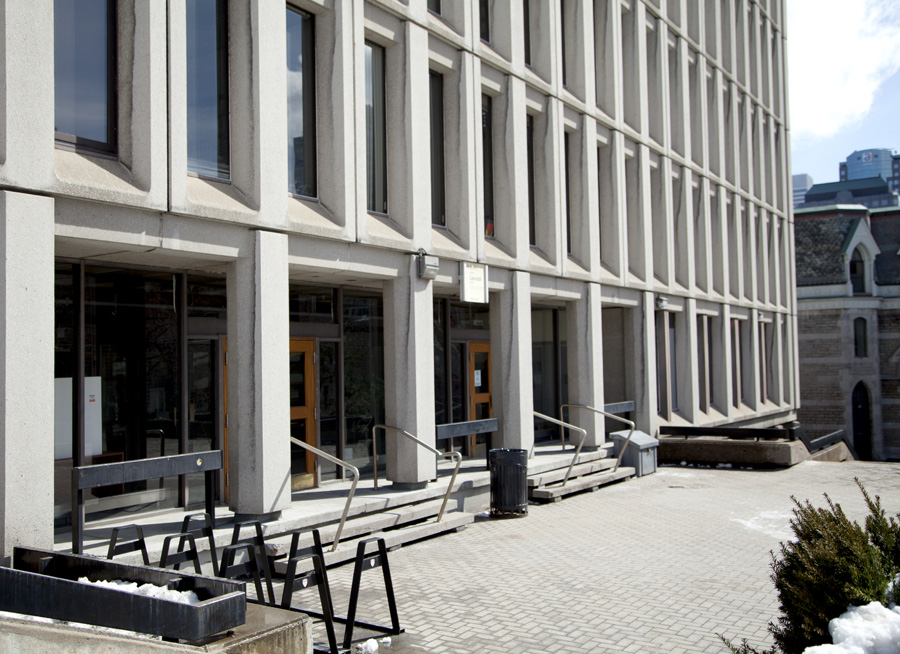At the Dec. 12, 2017 McGill Board of Governors (BoG) meeting, a proposed review of the terms of reference of McGill’s Committee to Advise on Matters of Social Responsibility (CAMSR) was met with protest by Divest McGill. CAMSR advises the BoG on the social impact of its investments. The proposed revision, which would require CAMSR to ensure that McGill investments are not used for social or political purposes, exacerbates the fault line between McGill’s students and administration.
Students’ anger is justified—the language of the proposed change in CAMSR’s terms of reference further alienates the University from students who have demonstrated time and time again that they care about the environment and social and political issues. McGill should recognize that social, political, and financial implications frequently overlap, and are often inescapable when pursuing environmentally conscious industry. It is untenable for CAMSR to sidestep “social and political purposes” while still fulfilling its mandate.
Dividing sociopolitical and financial actions seems to neutralize the language surrounding McGill’s investments, precluding the possibility or discussion of the University avoiding unethical investments. If McGill truly seeks to be a university on the cusp of technological development, as its participation in artificial intelligence research implies, it should pursue an investment model that incorporates its financial interests with being a role model for the social, political, and environmental responsibility championed by its students.
Ethical investment, or an investment made with regard to environmental, social, and governance issues (ESG investing), is one such model: A developing investment strategy that can produce great returns for the investor while aiding in the growth of sustainable and ethical industries. The main reason that financial analysts may not take ESG factors into account is because of a lack of client interest in these factors. McGill has an opportunity to support sustainable technologies by increasing their interest in ESG issues, instead of continuing to participate in the environmentally unsustainable “carbon bubble”—supporting fossil fuel companies by buying their stock as climate change continues to unfold.
To encourage ethical investing, CAMSR should be allowed to advise not only against social injury, as it currently does, but also in a positive capacity, balancing its mandate against “great social industry” with a possible policy designed to facilitate socially and environmentally responsible investments. The language of such a mandate would have to be extremely specific, and such a revision would be a long-term overhaul, but the end rewards would be worthwhile. Long-term thinking, after all, is a key tenet of ethical investment—a tenet that the BoG, still holding onto its high volume of carbon-based investments, currently lacks.
An ESG investment strategy would not only support environmentally-conscious companies, but would also be a step toward fixing the rift between students and administration. As the on-campus traction of Divest McGill—which currently has over 2,500 likes on Facebook—shows, many students often feel embattled by the choices of their administration. According to an article in The Guardian by Justin Keeble of Accenture Sustainability Services, young people care more about promoting sustainability than previous generations. This passion is heightened by the fear that every callous environmental choice compromises their future. When the University refuses to alter its investments to be more conscious of the future, its students feel not only disillusioned, but afraid and powerless.
Feeble attempts at financial neutrality, such as the proposed revision, are not a solution. Ethical investing, however, could be the beginning of a reconciliation between students and university.
As an advisory body focused on social responsibility, CAMSR has the potential to be McGill’s cornerstone for a more ethical financial future. Its current proposed revision, however, neutralizes this potential in a way that is visible and disheartening to its students. The BoG may be concerned with the performance of McGill’s investments, but the world—including the financial sphere—is changing rapidly, and what “performance” means might be changing, too. The administration should follow the example of its students, and start considering the long term.









